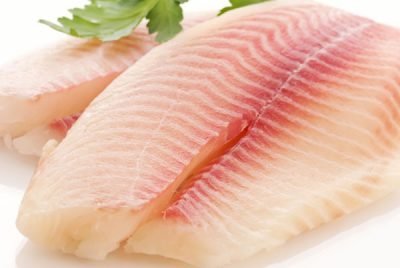We are seeing stories like this often: one type of food being passed off as another.
 In the past I’ve written about inorganic produce being sold as organic, foreign produce as local, farmed fish sold as wild, fish being completely mislabeled… the list goes on. After reading the following article, I’m starting to wonder about everything I see in the stores. Is there any truth in labeling?
In the past I’ve written about inorganic produce being sold as organic, foreign produce as local, farmed fish sold as wild, fish being completely mislabeled… the list goes on. After reading the following article, I’m starting to wonder about everything I see in the stores. Is there any truth in labeling?
From Popular Science Magazine,
Two high school students armed with DNA barcoding tech uncovered quite a few food shenanigans in New York City markets. Examples include expensive “sheep’s milk cheese” made from cow milk, “venison” dog treats made from beef, and “sturgeon caviar” that was actually Mississippi paddlefish.
The findings of consumer fraud in 16 percent of sampled products emerged from a “DNA House” project by Brenda Tan and Matt Cost, both 12th grade students at the Trinity School in New York City. Their work echoes the 2008 “sushi-gate” discoveries of two other Trinity students, which revealed mislabeled fish in Manhattan restaurants and markets.
Here is a second story from Wired Magazine about Tuna Fraud.
A biologist walks into a sushi bar and orders some tuna. What does he get? Escolar, a nasty fish with buttery flesh that can cause bizarre episodes of diarrhea, accompanied by a waxy intestinal discharge.
It’s not a joke. It happened five times to the same scientists during a brief research project. The results of that study were published Wednesday in PLOS One.
Kim says
Hopefully someday we will all have our own little DNA test kits???? I’m not sure what else can be done, other than only eating what we can completely control, but my diet would suddenly get very limited.
blackhook says
I have no problem with this, so long as proper royalties are paid to the sheep.
justacook says
It depends… what matters more? where your food came from or how it tastes? I mean, no I dont like to be duped but if its good, eat it… if you eat it and think its great and later find out you didnt eat what you thought you ate, does it really matter? imho NO! you probably wouldnt have liked the paddlefish roe as much had it been called such… but call it caviar… mmmm mmmm good!
CO says
I agree, in so far as I am not paying a higher price because it has been intentional or unintentionally mislabeled.
Christine says
Yes but some things do matter to me for other reasons like sustainability, and whether things were raised with loads of crappy chemicals and antibiotics, like farmed salmon vs. wild. I would be kind of pissed if salmon billed as wild in a restaurant turned out to be farmed, as I’m trying my best to make good choices for my health and the health of the fisheries.
Kim says
As a woman whose husband died at 37 from an “environmentally caused” cancer, there is a LOT more than taste that matters. He had lived a very healthy lifestyle and had no known activities (like marine re/finishing) that were a likely cause. But the Oncologists said, that at his age (the average age of onset of this particular cancer is 62), it was “environmentally caused.” The only clue we had was that in the Puget Sound area we had recently moved from, there seemed to be an inordinately high number of young (under 45) people diagnosed with different cancers in about a 3-4 year period – approximately 10 people that we knew.
The big take home lessons here are that his cancer was caused by an as yet unknown carcinogen that somehow made it into his body AND the primary risk factor the doctors mentioned was working in AGRICULTURE! Think about it. Agriculture is what we eat. Working with what we eat causes cancer.
So yeah, when I choose to eat organic vegetables or wild caught fish and I pay more for that choice, it sure as hell better be organic or wild caught.
wine&dine says
You can pretty much season anything and make it taste good, so seriously it would matter.
Call it what it is, paddlefish roe could be the new best trend, hide it and it will work against you.
Personally I would hope I could taste the difference.
We are all trying to make responsible choices both with our food and wallets.
What about vegetarians or those with religious restrictions on food? I find it unconscionable and yet we
live in an age where we have lost our way in considering the effects behaviors have on one another.
This is about money, cutting cost. The industry has taken a hit. Hopefully Portland restauranteurs that advertise local, organic have a conscious.